#Jeff Bezos Earnings
Explore tagged Tumblr posts
Text
Jeff Bezos's Net Worth in 2024
Explore Jeff Bezos’s Net Worth in 2024, featuring an in-depth breakdown of his salary—revealing the precise figure that shapes his wealth and also career highlights, income sources, investments, personal life, and prospects. It effectively delves into Jeff Bezos’s background, achievements, and challenges and provides valuable insights into his financial journey. Gain unparalleled insights into…
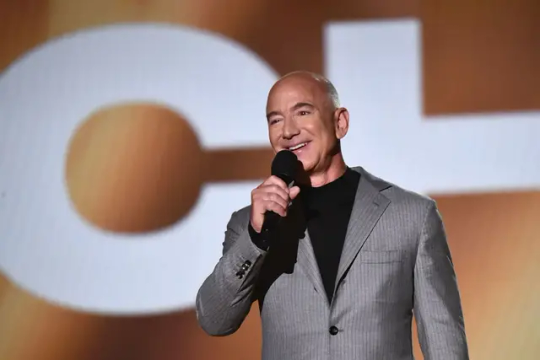
View On WordPress
#Amazon CEO#Amazon Founder#Bezos Business#Bezos Finances#Bezos Financial News#Bezos Financials#Bezos Wealth#Bezos Wealth Growth#Billionaire Bezos#Jeff Bezos Earnings#Jeff Bezos Economic Impact#Jeff Bezos Fortune#Jeff Bezos Investments#Jeff Bezos Success#Jeff Bezos&039;s Income#Jeff Bezos&039;s Net Worth#Jeff Bezos&039;s Net Worth in 2024#Jeff Bezos&039;s Salary#Net Worth of Jeff Bezos#Wealthy Entrepreneur
1 note
·
View note
Text
I was talking about this to my sister and we have questions.
Do the bones just disappear or do they get ripped out of me? Where is the money coming from? Is it made of magic or summoned from somewhere? Where is the money going? Is it zapped into my bank account or does it poof into existence in my hands? If it does get poofed into existence, is it in a container like a briefcase or just a pile at my feet?
I saw this question posed on tiktok, but I think Tumblr would really enjoy it too.
If a fae creature offered to give one million dollars for a bone chosen at random, how many bones would you allow them to take?
Light clarifications; The fae is not the one choosing the bones. The bone is taken at random. Each bone, no matter the size or importance, is worth a full million dollars. You must also declare the exact number first, you can't go bone-by-bone. You either say 2 or you say 10, you can't work your way up to a higher number. The bones are removed instantaneously, and the money is given immediately as well. You will not get in government trouble for acquiring the money.
Tell me in the tags/replies how many bones you'd let the fae take. And as always, reblog for bigger sample size.
#the generator said 'triquetral bone'#and if the money is summoned i would like it to be summoned from an asshole multi-millionaires bank account. like elon musk. or jeff bezos#actually anyone who earns money just for owning something is someone i want money from
32K notes
·
View notes
Text
if you got an additional line of income that guaranteed your basic needs would be met, (notes below)
notes:
- the money can come from whatever source you'd like to imagine. UBI, sugar daddy, magically delivered in unmarked bills onto your dining table overnight by elves, blackmailing jeff bezos, wherever
- it will keep coming indefinitely
- basic needs: housing, food, medical care, clothes, a bit of disposable income, etc. You would not be rich, but you would have enough. It will rise with inflation and such, to have the same purchasing power as before, and will cover you and your dependents
- any money you earn at your job (or anywhere) is on top of the basic needs money. How much you get is not affected by how much you make elsewhere
- vacation doesn’t necessarily mean you go anywhere; you just don't need to go to work
7K notes
·
View notes
Text
#success#jeff bezos#kindle#ebook#earn money online#make money from home#make money online#etsyshop#money#amazon#business#amazon kdp#amazonseller#amazon self publishing#dropshipping#dropout#sales#passive income#printondemand#3d printing#kdpbooks#kdp publishing#kdpamazon#kdp#free money#free palestine#coffee#coffee shop#redbubble#etsyseller
0 notes
Text
Retiring the US debt would retire the US dollar
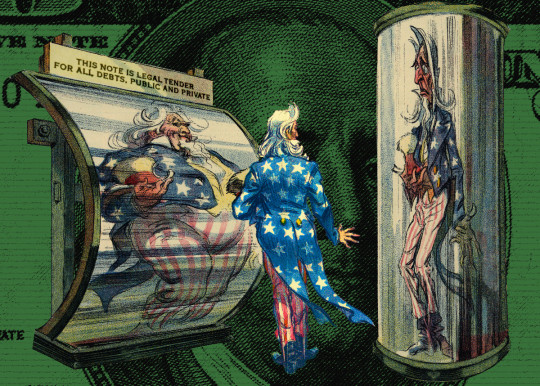
THIS WEDNESDAY (October 23) at 7PM, I'll be in DECATUR, GEORGIA, presenting my novel THE BEZZLE at EAGLE EYE BOOKS.

One of the most consequential series of investigative journalism of this decade was the Propublica series that Jesse Eisinger helmed, in which Eisinger and colleagues analyzed a trove of leaked IRS tax returns for the richest people in America:
https://www.propublica.org/series/the-secret-irs-files
The Secret IRS Files revealed the fact that many of America's oligarchs pay no tax at all. Some of them even get subsidies intended for poor families, like Jeff Bezos, whose tax affairs are so scammy that he was able to claim to be among the working poor and receive a federal Child Tax Credit, a $4,000 gift from the American public to one of the richest men who ever lived:
https://www.propublica.org/article/the-secret-irs-files-trove-of-never-before-seen-records-reveal-how-the-wealthiest-avoid-income-tax
As important as the numbers revealed by the Secret IRS Files were, I found the explanations even more interesting. The 99.9999% of us who never make contact with the secretive elite wealth management and tax cheating industry know, in the abstract, that there's something scammy going on in those esoteric cults of wealth accumulation, but we're pretty vague on the details. When I pondered the "tax loopholes" that the rich were exploiting, I pictured, you know, long lists of equations salted with Greek symbols, completely beyond my ken.
But when Propublica's series laid these secret tactics out, I learned that they were incredibly stupid ruses, tricks so thin that the only way they could possibly fool the IRS is if the IRS just didn't give a shit (and they truly didn't – after decades of cuts and attacks, the IRS was far more likely to audit a family earning less than $30k/year than a billionaire).
This has become a somewhat familiar experience. If you read the Panama Papers, the Paradise Papers, Luxleaks, Swissleaks, or any of the other spectacular leaks from the oligarch-industrial complex, you'll have seen the same thing: the rich employ the most tissue-thin ruses, and the tax authorities gobble them up. It's like the tax collectors don't want to fight with these ultrawealthy monsters whose net worth is larger than most nations, and merely require some excuse to allow them to cheat, anything they can scribble in the box explaining why they are worth billions and paying little, or nothing, or even entitled to free public money from programs intended to lift hungry children out of poverty.
It was this experience that fueled my interest in forensic accounting, which led to my bestselling techno-crime-thriller series starring the two-fisted, scambusting forensic accountant Martin Hench, who made his debut in 2022's Red Team Blues:
https://us.macmillan.com/books/9781250865847/red-team-blues
The double outrage of finding out how badly the powerful are ripping off the rest of us, and how stupid and transparent their accounting tricks are, is at the center of Chokepoint Capitalism, the book about how tech and entertainment companies steal from creative workers (and how to stop them) that Rebecca Giblin and I co-authored, which also came out in 2022:
https://chokepointcapitalism.com/
Now that I've written four novels and a nonfiction book about finance scams, I think I can safely call myself a oligarch ripoff hobbyist. I find this stuff endlessly fascinating, enraging, and, most importantly, energizing. So naturally, when PJ Vogt devoted two episodes of his excellent Search Engine podcast to the subject last week, I gobbled them up:
https://www.searchengine.show/listen/search-engine-1/why-is-it-so-hard-to-tax-billionaires-part-1
I love the way Vogt unpacks complex subjects. Maybe you've had the experience of following a commentator and admiring their knowledge of subjects you're unfamiliar with, only have them cover something you're an expert in and find them making a bunch of errors (this is basically the experience of using an LLM, which can give you authoritative seeming answers when the subject is one you're unfamiliar with, but which reveals itself to be a Bullshit Machine as soon as you ask it about something whose lore you know backwards and forwards).
Well, Vogt has covered many subjects that I am an expert in, and I had the opposite experience, finding that even when he covers my own specialist topics, I still learn something. I don't always agree with him, but always find those disagreements productive in that they make me clarify my own interests. (Full disclosure: I was one of Vogt's experts on his previous podcast, Reply All, talking about the inkjet printerization of everything:)
https://gimletmedia.com/shows/reply-all/brho54
Vogt's series on taxing billionaires was no exception. His interview subjects (including Eisinger) were very good, and he got into a lot of great detail on the leaker himself, Charles Littlejohn, who plead guilty and was sentenced to five years:
https://jacobin.com/2023/10/charles-littlejohn-irs-whistleblower-pro-publica-tax-evasion-prosecution
Vogt also delved into the history of the federal income tax, how it was sold to the American public, and a rather hilarious story of Republican Congressional gamesmanship that backfired spectacularly. I'd never encountered this stuff before and boy was it interesting.
But then Vogt got into the nature of taxation, and its relationship to the federal debt, another subject I've written about extensively, and that's where one of those productive disagreements emerged. Yesterday, I set out to write him a brief note unpacking this objection and ended up writing a giant essay (sorry, PJ!), and this morning I found myself still thinking about it. So I thought, why not clean up the email a little and publish it here?
As much as I enjoyed these episodes, I took serious exception to one – fairly important! – aspect of your analysis: the relationship of taxes to the national debt.
There's two ways of approaching this question, which I think of as akin to classical vs quantum physics. In the orthodox, classical telling, the government taxes us to pay for programs. This is crudely true at 10,000 feet and as a rule of thumb, it's fine in many cases. But on the ground – at the quantum level, in this analogy – the opposite is actually going on.
There is only one source of US dollars: the US Treasury (you can try and make your own dollars, but they'll put you in prison for a long-ass time if they catch you.).
If dollars can only originate with the US government, then it follows that:
a) The US government doesn't need our taxes to get US dollars (for the same reason Apple doesn't need us to redeem our iTunes cards to get more iTunes gift codes);
b) All the dollars in circulation start with spending by the US government (taxes can't be paid until dollars are first spent by their issuer, the US government); and
c) That spending must happen before anyone has been taxed, because the way dollars enter circulation is through spending.
You've probably heard people say, "Government spending isn't like household spending." That is obviously true: households are currency users while governments are currency issuers.
But the implications of this are very interesting.
First, the total dollars in circulation are:
a) All the dollars the government has ever spent into existence funding programs, transferring to the states, and paying its own employees, minus
b) All the dollars that the government has taxed away from us, and subsequently annihilated.
(Because governments spend money into existence and tax money out of existence.)
The net of dollars the government spends in a given year minus the dollars the government taxes out of existence that year is called "the national deficit." The total of all those national deficits is called "the national debt." All the dollars in circulation today are the result of this national debt. If the US government didn't have a debt, there would be no dollars in circulation.
The only way to eliminate the national debt is to tax every dollar in circulation out of existence. Because the national debt is "all the dollars the government has ever spent," minus "all the dollars the government has ever taxed." In accounting terms, "The US deficit is the public's credit."
When billionaires like Warren Buffet tell Jesse Eisinger that he doesn't pay tax because "he thinks his money is better spent on charitable works rather than contributing to an insignificant reduction of the deficit," he is, at best, technically wrong about why we tax, and at worst, he's telling a self-serving lie. The US government doesn't need to eliminate its debt. Doing so would be catastrophic. "Retiring the US debt" is the same thing as "retiring the US dollar."
So if the USG isn't taxing to retire its debts, why does it tax? Because when the USG – or any other currency issuer – creates a token, that token is, on its face, useless. If I offered to sell you some "Corycoins," you would quite rightly say that Corycoins have no value and thus you don't need any of them.
For a token to be liquid – for it to be redeemable for valuable things, like labor, goods and services – there needs to be something that someone desires that can be purchased with that token. Remember when Disney issued "Disney dollars" that you could only spend at Disney theme parks? They traded more or less at face value, even outside of Disney parks, because everyone knew someone who was planning a Disney vacation and could make use of those Disney tokens.
But if you go down to a local carny and play skeeball and win a fistful of tickets, you'll find it hard to trade those with anyone outside of the skeeball counter, especially once you leave the carny. There's two reasons for this:
1) The things you can get at the skeeball counter are pretty crappy so most people don't desire them; and ' 2) Most people aren't planning on visiting the carny, so there's no way for them to redeem the skeeball tickets even if they want the stuff behind the counter (this is also why it's hard to sell your Iranian rials if you bring them back to the US – there's not much you can buy in Iran, and even someone you wanted to buy something there, it's really hard for US citizens to get to Iran).
But when a sovereign currency issuer – one with the power of the law behind it – demands a tax denominated in its own currency, they create demand for that token. Everyone desires USD because almost everyone in the USA has to pay taxes in USD to the government every year, or they will go to prison. That fact is why there is such a liquid market for USD. Far more people want USD to pay their taxes than will ever want Disney dollars to spend on Dole Whips, and even if you are hoping to buy a Dole Whip in Fantasyland, that desire is far less important to you than your desire not to go to prison for dodging your taxes.
Even if you're not paying taxes, you know someone who is. The underlying liquidity of the USD is inextricably tied to taxation, and that's the first reason we tax. By issuing a token – the USD – and then laying on a tax that can only be paid in that token (you cannot pay federal income tax in anything except USD – not crypto, not euros, not rials – only USD), the US government creates demand for that token.
And because the US government is the only source of dollars, the US government can purchase anything that is within its sovereign territory. Anything denominated in US dollars is available to the US government: the labor of every US-residing person, the land and resources in US territory, and the goods produced within the US borders. The US doesn't need to tax us to buy these things (remember, it makes new money by typing numbers into a spreadsheet at the Federal Reserve). But it does tax us, and if the taxes it levies don't equal the spending it's making, it also sells us T-bills to make up the shortfall.
So the US government kinda acts like classical physics is true, that is, like it is a household and thus a currency user, and not a currency issuer. If it spends more than it taxes, it "borrows" (issues T-bills) to make up the difference. Why does it do this? To fight inflation.
The US government has no monetary constraints, it can make as many dollars as it cares to (by typing numbers into a spreadsheet). But the US government is fiscally constrained, because it can only buy things that are denominated in US dollars (this is why it's such a big deal that global oil is priced in USD – it means the US government can buy oil from anywhere, not only the USA, just by typing numbers into a spreadsheet).
The supply of dollars is infinite, but the supply of labor and goods denominated in US dollars is finite, and, what's more, the people inside the USA expect to use that labor and goods for their own needs. If the US government issues so many dollars that it can outbid every private construction company for the labor of electricians, bricklayers, crane drivers, etc, and puts them all to work building federal buildings, there will be no private construction.
Indeed, every time the US government bids against the private sector for anything – labor, resources, land, finished goods – the price of that thing goes up. That's one way to get inflation (and it's why inflation hawks are so horny for slashing government spending – to get government bidders out of the auction for goods, services and labor).
But while the supply of goods for sale in US dollars is finite, it's not fixed. If the US government takes away some of the private sector's productive capacity in order to build interstates, train skilled professionals, treat sick people so they can go to work (or at least not burden their working-age relations), etc, then the supply of goods and services denominated in USD goes up, and that makes more fiscal space, meaning the government and the private sector can both consume more of those goods and services and still not bid against one another, thus creating no inflationary pressure.
Thus, taxes create liquidity for US dollars, but they do something else that's really important: they reduce the spending power of the private sector. If the US only ever spent money into existence and never taxed it out of existence, that would create incredible inflation, because the supply of dollars would go up and up and up, while the supply of goods and services you could buy with dollars would grow much more slowly, because the US government wouldn't have the looming threat of taxes with which to coerce us into doing the work to build highways, care for the sick, or teach people how to be doctors, engineers, etc.
Taxes coercively reduce the purchasing power of the private sector (they're a stick). T-bills do the same thing, but voluntarily (they the carrot).
A T-bill is a bargain offered by the US government: "Voluntarily park your money instead of spending it. That will create fiscal space for us to buy things without bidding against you, because it removes your money from circulation temporarily. That means we, the US government, can buy more stuff and use it to increase the amount of goods and services you can buy with your money when the bond matures, while keeping the supply of dollars and the supply of dollar-denominated stuff in rough equilibrium."
So a bond isn't a debt – it's more like a savings account. When you move money from your checking to your savings, you reduce its liquidity, meaning the bank can treat it as a reserve without worrying quite so much about you spending it. In exchange, the bank gives you some interest, as a carrot.
I know, I know, this is a big-ass wall of text. Congrats if you made it this far! But here's the upshot. We should tax billionaires, because it will reduce their economic power and thus their political power.
But we absolutely don't need to tax billionaires to have nice things. For example: the US government could hire every single unemployed person without creating inflationary pressure on wages, because inflation only happens when the US government tries to buy something that the private sector is also trying to buy, bidding up the price. To be "unemployed" is to have labor that the private sector isn't trying to buy. They're synonyms. By definition, the feds could put every unemployed person to work (say, training one another to be teachers, construction workers, etc – and then going out and taking care of the sick, addressing the housing crisis, etc etc) without buying any labor that the private sector is also trying to buy.
What's even more true than this is that our taxes are not going to reduce the national debt. That guest you had who said, "Even if we tax billionaires, we will never pay off the national debt,"" was 100% right, because the national debt equals all the money in circulation.
Which is why that guest was also very, very wrong when she said, "We will have to tax normal people too in order to pay off the debt." We don't have to pay off the debt. We shouldn't pay off the debt. We can't pay off the debt. Paying off the debt is another way of saying "eliminating the dollar."
Taxation isn't a way for the government to pay for things. Taxation is a way to create demand for US dollars, to convince people to sell goods and services to the US government, and to constrain private sector spending, which creates fiscal space for the US government to buy goods and services without bidding up their prices.
And in a "classical physics" sense, all of the preceding is kinda a way of saying, "Taxes pay for government spending." As a rough approximation, you can think of taxes like this and generally not get into trouble.
But when you start to make policy – when you contemplate when, whether, and how much to tax billionaires – you leave behind the crude, high-level approximation and descend into the nitty-gritty world of things as they are, and you need to jettison the convenience of the easy-to-grasp approximation.
If you're interested in learning more about this, you can tune into this TED Talk by Stephanie Kelton, formerly formerly advisor to the Senate Budget Committee chair, now back teaching and researching econ at University of Missouri at Kansas City:
https://www.ted.com/talks/stephanie_kelton_the_big_myth_of_government_deficits?subtitle=en
Stephanie has written a great book about this, The Deficit Myth:
https://pluralistic.net/2020/05/14/everybody-poops/#deficit-myth
There's a really good feature length doc about it too, called "Finding the Money":
https://findingmoneyfilm.com/
If you'd like to read more of my own work on this, here's a column I wrote about the nature of currency in light of Web3, crypto, etc:
https://locusmag.com/2022/09/cory-doctorow-moneylike/

Tor Books as just published two new, free LITTLE BROTHER stories: VIGILANT, about creepy surveillance in distance education; and SPILL, about oil pipelines and indigenous landback.


If you'd like an essay-formatted version of this post to read or share, here's a link to it on pluralistic.net, my surveillance-free, ad-free, tracker-free blog:
https://pluralistic.net/2024/10/21/we-can-have-nice-things/#public-funds-not-taxpayer-dollars
#pluralistic#mmt#modern monetary theory#warren buffett#podcasts#pj vogt#billionaires#economics#we can have nice things#taxes#taxing billionaires#the irs files#irs files#jesse eisenger#propublica
1K notes
·
View notes
Text

MacKenzie Scott novelist and billionaire philanthropist who helped her then-husband Jeff Bezos build the foundation for his Amazon empire. She has a net worth of US$40 billion. She donated:
$50 Million to Prairie View A&M University.
$45 Million to N.C. A&T State University.
$40 Million to Morgan State University.
$40 million to Howard University
$40 Million to Norfolk State University.
$40 Million to Hampton University.
$30 Million to Virginia State University.
$30 Winston Salem State University.
$25 Alcorn State University
$25 Million Bowie State University
$20 Million Lincoln University
$20 Million Delaware State University.
$20 Million Claflin University
$20 Million to University of Maryland Eastern Shore
$20 million to Tuskegee University, as well $20 million to Xavier University
$20 million to Spelman College
$20 million to Morehouse College
$15 Million Elizabeth City State University
$15 Million Clark Atlanta University
$6 million to Tougaloo College
$5 Million Dillard University
Her mentor in college was Toni Morrison a Howard University (HBCU) Alum. Jeff Bezos hired Scott at the hedge fund where he worked after receiving a recommendation from Morrison. Shortly thereafter, the pair married and Scott helped Bezos launch Amazon.
Scott earned attended Princeton University, where she studied creative writing under Toni Morrison in the early 1990s. The literary legend served as her thesis adviser and mentor. Morrison, who graduated from Howard University in 1953, was the first Black woman to receive the Nobel Prize in Literature.
63 notes
·
View notes
Text
Because of what's happening on Twitter...
I've made a little diagram to demonstrate why billionaires and the ultra-wealthy are bad for society.

(Text in Image)
"If we view society as a body, every sector is like a different organ within the body that serves a function and works in harmony with other organs to maintain balance. Every part of the body is important for the whole thing to function."
"The ultra-wealthy want you to believe they are the beating heart and thinking mind of the society – they are the innovators who create our jobs and their brilliance drives society forward. They deserve to be at the top of society because they have earned that. Without them, the body won’t function because they are the most important part."
"In reality, they are more like a malignant tumour, sucking all of the blood (resources) away from everything else (people and the planet) to fuel its own infinite growth, depriving the rest of the body and slowly killing it. Workers create all of the innovation and keep things running, the ultra-wealthy take all the credit."
------------------------------------------------------------------------
This is a public domain image so feel free to pinch it for whatever.
Elon Musk has put the careers of thousands of small business owners who depend on Twitter (myself included) in jeopardy by completely running it into the ground. Before this, Mark Zuckerberg had already been doing the same when he started pursuing Metaverse, making Instagram and Facebook much more unusable for artists. Do I really need to go into other examples of CEOs and very normalised practise of wage theft?
Meanwhile, the UK currently has the richest Prime Minister in its history. What is this man doing with this wealth? Continuing the Tory legacy of austerity in order to line his pockets and the pockets of his crony friends. This has resulted in a devastating cost of living crisis that continues to ravage the country as people's energy bills skyrocket out of control.
My diagram is pretty basic and lacks nuance, there's definitely more I could elaborate on with this comparison but I really don't have time. I just want people to get the basic point of how billionaires view themselves vs what function they actually serve. I'm also not here to debate whether some organs are more important than others since I'm not a doctor, that's not really the point here. And no, I don't care if people think I'm being harsh by comparing billionaires to a tumour. If they don't want to be compared to one they should stop acting like one. Jeff Bezos could end world hunger right now and chooses not to.
Also, I know a lot of people are going to come at me with the argument that billionaires give away massive amounts of money. First off, people like Jeff Bezos only give large sums of money to charity a.) for the sake of improving their public image and b.) because giving to charity allows them to write it off in their taxes. Also, charities in of themselves have a lot of problems, but that's a blog post for another day. Mutual Aid is a better way to help people directly. Really, the ultra wealthy need to be taxed, of course they do everything within their power to avoid taxes.
Also:

"Earning a lot of money" and "holding onto a lot of money" are two different things. You cannot be a multi-millionaire unless you hold onto that money. If you give away massive chunks of it to enrich society, you cease to be a billionaire.
Oh and this is worth a watch, too.
Furthermore:
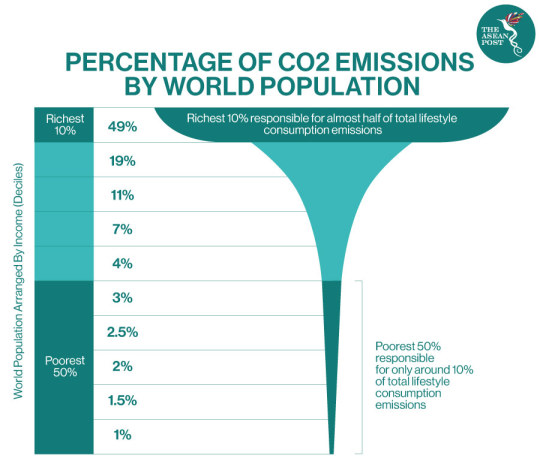
Also before the inevitable great man comments:

Being a billionaire is a moral failing. Nobody needs that much money.
[Slight edit here - I made the assertion that a billionaire could not spend all of their money in their lifetime, but as someone in the comments pointed out it's very easy for them to completely waste billions in no time. Elon Musk and Mark Zuckerberg have shown that].
Anyway, if you would like to see more anti-Capitalist art from me, I am currently working on a webcomic called "Flowerpunk" - a story about a group of anarchists who are trying to save the city of Wyrdon from a supernatural plague known as "the rot." The comic heavily discusses disaster Capitalism and how the rich will use mass death and destruction as an opportunity to further line their pockets.
I also like to do little anti-Capitalist doodles relating to this project, which I plan to make into posters at some point.
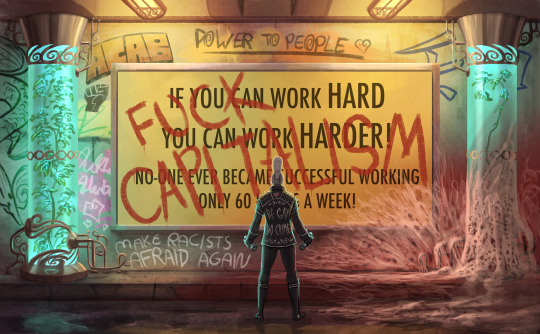


Please consider donating a Ko-Fi also if you would like to help support this project. I am really struggling at the moment because I've basically lost a massive chunk of my client base due to this Twitter implosion and also because of the AI BS that has made it impossible for me to get any reach nowadays. The last year or so has been an absolute nightmare for my career because of all of this.
Thank you all for your continued support! Hopefully I can re-establish my audience here on Tumblr and wherever else I decide to go.
#Twitter#twitpocalypse#elongated muskrat#eat the rich#eat the fucking rich#tax the rich#tax the 1%#tax the billionaires#anti capitalism#workers of the world unite#working class solidarity#Can you tell that I am absolutely fucking done with this BS?
787 notes
·
View notes
Video
youtube
It’s Time to Roast Starbucks For Union Busting
Starbucks should be getting publicly roasted for union busting and refusing to even negotiate with unionized workers.
You see, if there’s one thing I love more than coffee, it’s unions. Because unions perk up pay.
And if there’s one thing I hate more than corporations who try to bust unions, it’s having to make my own coffee every morning.
I may be known for a lot of things, but making a good cup of coffee isn’t one of them.
I was thrilled to hear about workers in Starbucks’ stores across the country exercising their right to unionize.
A cup of solidarity brewed by a unionized barista? What could be better than that?
Definitely not me being my own barista.
Starbucks is a multibillion dollar company. Its new CEO will start with a pay package estimated to be worth over $28 million dollars. That’s roughly 800x the pay of the workers who actually brew and serve the coffee the business is built on — and who barely earn a living wage.
That’s why those workers have begun to unionize.
Since December 2021, Starbucks Workers United has won union elections in more than 300 Starbucks stores, covering more than 8,000 workers and counting.
And most of the union campaigns in individual stores won by overwhelming margins, gaining more than 70% of the total votes — and in parts of the country where private sector unions rarely win.
The Starbucks union campaign has inspired young workers across the country and breathed life into a U.S. labor movement that has been stagnant for decades.
It’s been so successful that Starbucks briefly brought its former CEO, billionaire Howard Schultz, out of retirement to bust the union, and still refuses to even sit down at the bargaining table.
That’s why I’ve been boycotting Starbucks.
As part of its campaign to tamp down further unionization, Starbucks corporate has fired scores of pro-union workers, closed stores that have unionized, threatened to withhold wage and benefit improvements from stores considering unionizing, and packed stores with outside managers to undermine organizing efforts.
The National Labor Relations Board, which oversees all union elections in the U.S., has issued more than 93 complaints covering 328 unfair labor practice charges against Starbucks — and ordered reinstatement of at least 23 fired workers so far.
Yet Starbucks is unwilling to change its anti-union ways — even though Schultz was grilled in front of Congress
Starbucks claims to be a “progressive” company.
But based on the way it’s broken labor law and put unionized workers in the percolator, that couldn’t be further from the truth.
Now is an opportunity for all of us to make our voices heard and to tell Starbucks to stop UNION BUSTING and bargain in good faith with Starbucks Workers United.
And it’s time for Joe Biden, who calls himself the “most pro-union president in American history,” to send a powerful message: we won’t tolerate union-busting by Starbucks or any other corporation — including Elon Musk’s Tesla and Jeff Bezos’s Amazon.
Otherwise, my boycott will continue — and perhaps you’ll consider joining me.
If we want to brew a future where workers have power and dignity, then we need to show solidarity with unions…
And stand up to corporate bullying.
#youtube#unions#corporations#politics#business#union busting#Gen Z#video#videos#starbucks#coffee#Joe Biden
456 notes
·
View notes
Text
Tony is not a businessman
Crazy opinion, some might say. But I know what I'm talking about. Let me show you.
Here's a hypothesis: Tony was never interested in becoming CEO of SI or any other company. Never wanted to do business for life. Was not interested in what's going on in his company before Afghanistan. And never even learned how to run it.
Let's check the facts we have:
Before becoming CEO, Tony spent his entire life as a student. He had degrees in science and engineering. Nothing close to business. No MBA, no economics, no management. His interest was focused on robotics and AI. Before his parents died, he had no experience running a company or working in business. I'm sure his father gave him some business training. Including, of course, how to behave in public so as not to be eaten by sharks. But that's it. He never showed or mentioned any interest in business.
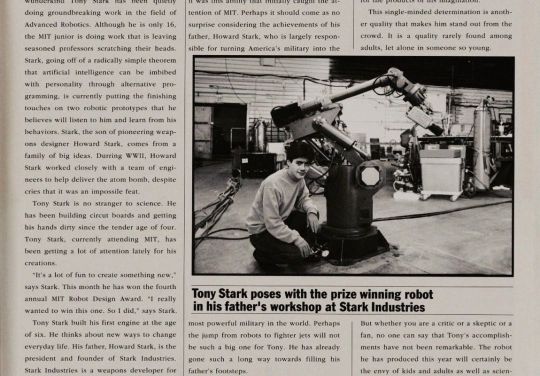
He was not interested in expanding his company or making more money. He stopped at $10-20 billion. Never earned more, but could. Reminder from this post about the net worth of real billionaires: Elon Musk - $210 billions, Jeff Bezos - $195 billions, Bill Gates - $129 billions. Huge difference. And they are not even as brilliant as he is.
He also didn't try to buy and take over other companies.
He didn't really care about money. He stopped weapon manufacturing after returning from Afghanistan. He knew that SI could go bankrupt. Easily. But he did it anyway. He could have made a lot of enemies. Including politicians and military. He did it anyway.

He instructed Pepper not to do business with other companies working on anything that could be used as a weapon.


And this means fewer projects and contracts, less profit and influence on the market and many industries.
Have you ever seen him actually run SI independently? In IM1, he showed Jericho to officers in Afghanistan and reported back to Stane on how it went.
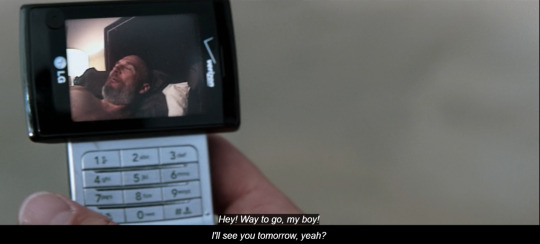
He wasn't even aware of the Board meeting.

He appointed Pepper as CEO. Yes, he thought he was going to die soon. But he never took it back. This gave him more freedom to do what he was most interested in and enjoyed doing - science and saving the world.
When he was appointing her in IM2, he said:

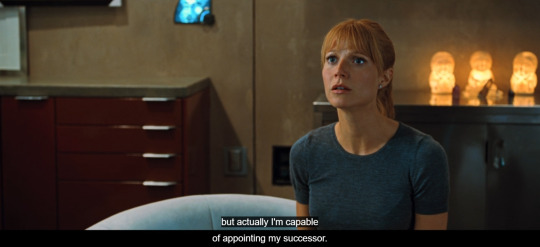
He thought. He didn't even know how the company's processes worked. Because he was not interested, and because Stane was doing business for him.
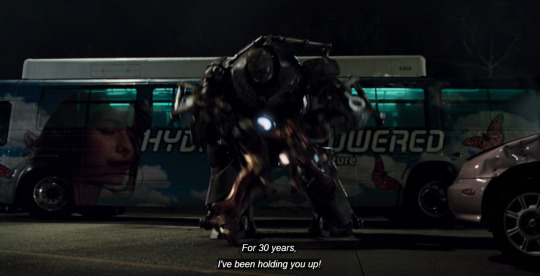
And Tony simply trusted him and the board of directors because they promised him they wouldn't do dirty business. That was the only thing that interested him back then.
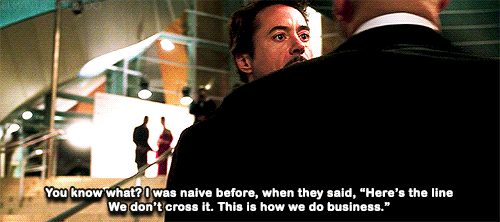
That's why he had zero awareness of all the under-the-table deals Stane made behind his back. Because Tony never looked back. He trusted them. This trait will again hurt him greatly in the future.
We never saw him in his office (only when it became Pepper's office). He was always at home in his lab.
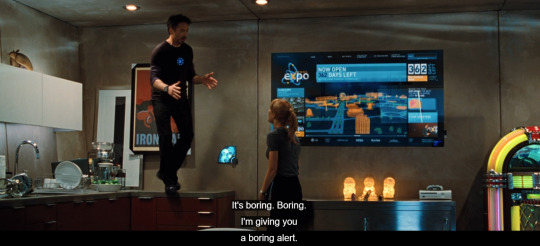
Every time Pepper or other people came to Tony with business matters, Tony tried to get rid of them (the matters and the people). To postpone, to ignore, to be late, intentionally or not. It was boring. He didn't like the people in business. He didn't respect them because he knew who they were. He didn't care about their recognition. He was making more room in his busy schedule to spend time at home, doing science and tinkering.

Conclusion: Tony was never really the CEO of SI. He was its R&D Department.
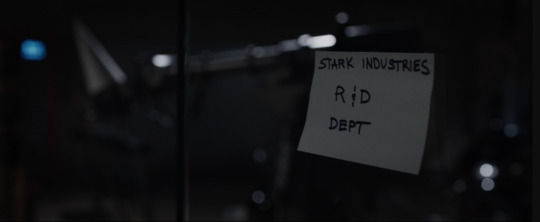
He was never a businessman, but had to pretend to be one. He was not a businessman not because he was incapable or lazy. He was smart enough to do the job. It just wasn't his thing. He was glad to get rid of this obligation as soon as possible. After 20 years of living a life he never wanted, it certainly felt great being someone closer to himself.

P.S. Happy non-CEO 1602 Tony says Hi from his science barn (he also knows the local Robin Hood, but shh...).

#marvel#mcu#tony stark#iron man#the avengers#iron man 3#iron man 2#pepper potts#obadiah stane#business#stark industries#what if
59 notes
·
View notes
Text

Wizard School Mysteries Book 3: Wicked Witchcraft will be available for purchase on Friday, September 13th, 2024!
Here's a plot synopsis for you:
After a summer spent reconnecting with their families and loved ones, the Meddlesome Youths have returned to the Academy of Applied Arcana and Magic for their sophomore year of their spell-casting education, each hoping that this semester will be quieter than the last school year was - or at least involve less death and kidnapping. But how could it be at a school that welcomes in the supernatural? With vampire teachers, haunted classrooms, a masked maniac prowling the woods outside campus, and a river from the Underworld itself lying beneath campus, the deck is stacked against a peaceful school year. Add to it the fact that one of their number, Gretchen Pappenheimer, is trapped in an internship that's literally from Hell, and our young sleuths are fated for a fall semester they'll never forget - provided they can survive it! The spookiest entry yet in the Wizard School Mysteries series, Wicked Witchcraft puts our meddlesome youths up against their most deadly foes yet in an adventure that takes them to Hell and back. A perfect adventure to read on Samhain or Freyasday the 13th!
If you don't want to have to give the demon lord Jeff Bezos your hard-earned money, don't fret! As I have with previous books, I will order some author copies (which amazon only charges me for the cost of producing them, taking no profit for itself) and mail them to you for the low low cost of the book's normal price ($15) plus whatever shipping ends up being (which, as of a year and a half ago, averaged to about $7.50 per person, depending on where you live in relation to Michigan). Just shoot me a DM and we'll work out the details!
49 notes
·
View notes
Text
Tech Bros are weak
Like a lot of Americans, I once had hope that Meta’s Mark Zuckerberg would be the anti-Musk, a billionaire with enough money not to cower under the conservative agenda of censorship, restricting the rights of women, preventing marginalized Americans from voting, and other unconstitutional sins. (Sadly, I once thought the same thing about Jeff Bezos after he purchased The Washington Post, which I thought he would preserve rather than dismantle. Clearly, I am bad at picking people with courage or integrity.)
But Zuckerberg proved to be just another tech bro who prizes profit above all else. He lives under the twisted idea that earning more money will also earn him more respect. But what Trump, Musk, Bezos, and Zuckerberg have learned is that the people who praise and support them aren’t the kind of people whose respect is worth anything. These people, like them, judge worthiness by the most simplistic measure: bank account. Not by integrity, morality, intelligence, reason, or compassion. To them, those measures are for suckers. As I once overheard a rich TV producer say, “We’re trying to appeal to the kind of person we wouldn’t want to have dinner with.”
That’s why they bray so much about the “elite.” To them, the elite are people unswayed by super yachts and billions—they just judge a person by their actions and the logic of what they say. These are people who will never take a knee just for more money. That’s why Trumpites spend so much effort whipping up the mob against them.
-- from Kareem Abdul Jabbar's substack -- you should read it
13 notes
·
View notes
Text
All The Women’s News You Missed Last Week
12/30/24-1/6/25
An Indian woman’s family rushes to pay “blood money” to avoid the death penalty in Yemen after she killed her business partner in self-defense, a female journalist quits the Washington Post after she was censored for drawing cartoons critical of Post owner Jeff Bezos and Ellie Smeal is honored for her work defending women’s rights. Once again reproductive rights are in the spotlight in the US as anxiety mounts about the new conservative government and more this week…
Want this in your inbox instead? Subscribe here
Reproductive Rights:
Newborns are being left in dumpsters in Texas, but Republicans don't seem to care
Trump and His New Republican Congress Will Make *All* U.S. Taxpayers Fund Unregulated Crisis Pregnancy Clinics
Despite Republican Bans and Clinic Violence, Independent Abortion Providers Fight to Keep Their Doors Open
Women in the News:
After bruising election loss, what next for Kamala Harris?
How a home-made snack empowered Indian women
'I resent you': Wife's remark a wake up call for husband over Japan's surname issue
Washington Post cartoonist quits after Bezos satire is rejected
The remarkable life of Andrée Blouin - Africa's overlooked independence heroine
World's oldest person Tomiko Itooka dies aged 116
Rebel Wilson marries Ramona Agruma in Sydney ceremony
Rosita Missoni, co-founder of Italian label, dies aged 93
Brazil ex-official returns toilet she had removed from office
Three dead in suspected Christmas cake poisoning
Ellie Smeal Honored with Presidential Citizens Medal for Defining the Women’s Rights Movement
Male Violence:
‘I Was Gaslit’: Kate Beckinsale Speaks Up About How Hollywood Treats Women While Supporting Blake Lively
Lively and Baldoni both file new lawsuits in harassment row
Police identify woman set on fire in deadly New York City attack
Child sexual abuse inquiry chair urges government to act
Last hope for Indian nurse on death row in Yemen: pardon from victim's family
British woman and fiance found dead in Vietnam villa
Murder inquiry launched into death of woman in her 30s
Man arrested over death of woman in County Roscommon
Arts and Culture:
Kehlani shares how taking risks earned Grammy noms while balancing mental health during activism
Amazon to release Melania Trump documentary
Bringing a tyrannical Ethiopian queen and her twins to life
Meet Amy Allen, the songwriter behind the music stuck in your head
Opinion:
‘Sex strikes’ aren’t the feminist win they appear to be. Here’s how to get really radical
As always, this is global and domestic news from a US perspective covering feminist issues and women in the news more generally. As of right now, I do not cover Women’s Sports. Published each Monday afternoon.
#radblr#radical feminism#radical feminist#radical feminists do touch#radfem safe#radical feminist theory#radfems#radfem
8 notes
·
View notes
Note
Do you think Dale used being pregnant as a marketing tactic?
Excellent question! My answer to that is.... I'm not sure.
I think that if he were to earn more money by using his pregnancy as a marketing tactic, then he definitely would. But would he actually gain more money by using his pregnancy as a marketing tactic? He's Dale Dimmadome, an off putting and out of touch rich guy who says stuff like "eat a lizard" and "tough tiddles kiddles". He's a jerk! No one likes him! Would his image really convince expectant parents to buy his stuff? If Jeff Bezos were pregnant and used his image to sell prenatals, would people actually be inclined to buy it? Cursed imagery, I know, but you get it.
In conclusion, Dale would definitely use his pregnancy to market his products if he could actually gain more money that way. However, he sucks and everyone knows that, so he might not.
#headcanon#my headcanons#I wanna see him model for his own pregnancy wear line though#Dimmapregnancy wear new and limited edition 999$ a piece. Buy now! And then there's an image of Dale wearing the ugliest shirt ever#like he's posed like this 🫃 and the shirt says something like “My baby is worth a billion bucks” or something#Buy my prenatals now available at Dimmazon! Only 1000$ for a month's worth and they're legit! I use them myself! - Dale#dale dimmadome#dalepreg#ask#anon ask#fop a new wish#fairly oddparents a new wish#fopanw#fairly odd parents a new wish#tw pregnancy#cw pregnancy#mpreg#trans pregnancy
10 notes
·
View notes
Text
Gig apps trap reverse centaurs in Skinner boxes

Enshittification is the process by which digital platforms devour themselves: first they dangle goodies in front of end users. Once users are locked in, the goodies are taken away and dangled before business customers who supply goods to the users. Once those business customers are stuck on the platform, the goodies are clawed away and showered on the platform’s shareholders:
https://pluralistic.net/2023/01/21/potemkin-ai/#hey-guys
If you’d like an essay-formatted version of this post to read or share, here’s a link to it on pluralistic.net, my surveillance-free, ad-free, tracker-free blog:
https://pluralistic.net/2023/04/12/algorithmic-wage-discrimination/#fishers-of-men
Enshittification isn’t just another way of saying “fraud” or “price gouging” or “wage theft.” Enshittification is intrinsically digital, because moving all those goodies around requires the flexibility that only comes with a digital businesses. Jeff Bezos, grocer, can’t rapidly change the price of eggs at Whole Foods without an army of kids with pricing guns on roller-skates. Jeff Bezos, grocer, can change the price of eggs on Amazon Fresh just by twiddling a knob on the service’s back-end.
Twiddling is the key to enshittification: rapidly adjusting prices, conditions and offers. As with any shell game, the quickness of the hand deceives the eye. Tech monopolists aren’t smarter than the Gilded Age sociopaths who monopolized rail or coal — they use the same tricks as those monsters of history, but they do them faster and with computers:
https://doctorow.medium.com/twiddler-1b5c9690cce6
If Rockefeller wanted to crush a freight company, he couldn’t just click a mouse and lay down a pipeline that ran on the same route, and then click another mouse to make it go away when he was done. When Bezos wants to bankrupt Diapers.com — a company that refused to sell itself to Amazon — he just moved a slider so that diapers on Amazon were being sold below cost. Amazon lost $100m over three months, diapers.com went bankrupt, and every investor learned that competing with Amazon was a losing bet:
https://slate.com/technology/2013/10/amazon-book-how-jeff-bezos-went-thermonuclear-on-diapers-com.html
That’s the power of twiddling — but twiddling cuts both ways. The same flexibility that digital businesses enjoy is hypothetically available to workers and users. The airlines pioneered twiddling ticket prices, and that naturally gave rise to countertwiddling, in the form of comparison shopping sites that scraped the airlines’ sites to predict when tickets would be cheapest:
https://pluralistic.net/2023/02/27/knob-jockeys/#bros-be-twiddlin
The airlines — like all abusive businesses — refused to tolerate this. They were allowed to touch their knobs as much as they wanted — indeed, they couldn’t stop touching those knobs — but when we tried to twiddle back, that was “felony contempt of business model,” and the airlines sued:
https://www.cnbc.com/2014/12/30/airline-sues-man-for-founding-a-cheap-flights-website.html
And sued:
https://www.nytimes.com/2018/01/06/business/southwest-airlines-lawsuit-prices.html
Platforms don’t just hate it when end-users twiddle back — if anything they are even more aggressive when their business-users dare to twiddle. Take Para, an app that Doordash drivers used to get a peek at the wages offered for jobs before they accepted them — something that Doordash hid from its workers. Doordash ruthlessly attacked Para, saying that by letting drivers know how much they’d earn before they did the work, Para was violating the law:
https://www.eff.org/deeplinks/2021/08/tech-rights-are-workers-rights-doordash-edition
Which law? Well, take your pick. The modern meaning of “IP” is “any law that lets me use the law to control my competitors, competition or customers.” Platforms use a mix of anticircumvention law, patent, copyright, contract, cybersecurity and other legal systems to weave together a thicket of rules that allow them to shut down rivals for their Felony Contempt of Business Model:
https://locusmag.com/2020/09/cory-doctorow-ip/
Enshittification relies on unlimited twiddling (by platforms), and a general prohibition on countertwiddling (by platform users). Enshittification is a form of fishing, in which bait is dangled before different groups of users and then nimbly withdrawn when they lunge for it. Twiddling puts the suppleness into the enshittifier’s fishing-rod, and a ban on countertwiddling weighs down platform users so they’re always a bit too slow to catch the bait.
Nowhere do we see twiddling’s impact more than in the “gig economy,” where workers are misclassified as independent contractors and put to work for an app that scripts their every move to the finest degree. When an app is your boss, you work for an employer who docks your pay for violating rules that you aren’t allowed to know — and where your attempts to learn those rules are constantly frustrated by the endless back-end twiddling that changes the rules faster than you can learn them.
As with every question of technology, the issue isn’t twiddling per se — it’s who does the twiddling and who gets twiddled. A worker armed with digital tools can play gig work employers off each other and force them to bid up the price of their labor; they can form co-ops with other workers that auto-refuse jobs that don’t pay enough, and use digital tools to organize to shift power from bosses to workers:
https://pluralistic.net/2022/12/02/not-what-it-does/#who-it-does-it-to
Take “reverse centaurs.” In AI research, a “centaur” is a human assisted by a machine that does more than either could do on their own. For example, a chess master and a chess program can play a better game together than either could play separately. A reverse centaur is a machine assisted by a human, where the machine is in charge and the human is a meat-puppet.
Think of Amazon warehouse workers wearing haptic location-aware wristbands that buzz at them continuously dictating where their hands must be; or Amazon drivers whose eye-movements are continuously tracked in order to penalize drivers who look in the “wrong” direction:
https://pluralistic.net/2021/02/17/reverse-centaur/#reverse-centaur
The difference between a centaur and a reverse centaur is the difference between a machine that makes your life better and a machine that makes your life worse so that your boss gets richer. Reverse centaurism is the 21st Century’s answer to Taylorism, the pseudoscience that saw white-coated “experts” subject workers to humiliating choreography down to the smallest movement of your fingertip:
https://pluralistic.net/2022/08/21/great-taylors-ghost/#solidarity-or-bust
While reverse centaurism was born in warehouses and other company-owned facilities, gig work let it make the leap into workers’ homes and cars. The 21st century has seen a return to the cottage industry — a form of production that once saw workers labor far from their bosses and thus beyond their control — but shriven of the autonomy and dignity that working from home once afforded:
https://doctorow.medium.com/gig-work-is-the-opposite-of-steampunk-463e2730ef0d
The rise and rise of bossware — which allows for remote surveillance of workers in their homes and cars — has turned “work from home” into “live at work.” Reverse centaurs can now be chickenized — a term from labor economics that describes how poultry farmers, who sell their birds to one of three vast poultry processors who have divided up the country like the Pope dividing up the “New World,” are uniquely exploited:
https://onezero.medium.com/revenge-of-the-chickenized-reverse-centaurs-b2e8d5cda826
A chickenized reverse centaur has it rough: they must pay for the machines they use to make money for their bosses, they must obey the orders of the app that controls their work, and they are denied any of the protections that a traditional worker might enjoy, even as they are prohibited from deploying digital self-help measures that let them twiddle back to bargain for a better wage.
All of this sets the stage for a phenomenon called algorithmic wage discrimination, in which two workers doing the same job under the same conditions will see radically different payouts for that work. These payouts are continuously tweaked in the background by an algorithm that tries to predict the minimum sum a worker will accept to remain available without payment, to ensure sufficient workers to pick up jobs as they arise.
This phenomenon — and proposed policy and labor solutions to it — is expertly analyzed in “On Algorithmic Wage Discrimination,” a superb paper by UC Law San Franciscos Veena Dubal:
https://papers.ssrn.com/sol3/papers.cfm?abstract_id=4331080
Dubal uses empirical data and enthnographic accounts from Uber drivers and other gig workers to explain how endless, self-directed twiddling allows gig companies pay workers less and pay themselves more. As @[email protected] explains in his LA Times article on Dubal’s research, the goal of the payment algorithm is to guess how often a given driver needs to receive fair compensation in order to keep them driving when the payments are unfair:
https://www.latimes.com/business/technology/story/2023-04-11/algorithmic-wage-discrimination
The algorithm combines nonconsensual dossiers compiled on individual drivers with population-scale data to seek an equilibrium between keeping drivers waiting, unpaid, for a job; and how much a driver needs to be paid for an individual job, in order to keep that driver from clocking out and doing something else. @ Here’s how that works. Sergio Avedian, a writer for The Rideshare Guy, ran an experiment with two brothers who both drove for Uber; one drove a Tesla and drove intermittently, the other brother rented a hybrid sedan and drove frequently. Sitting side-by-side with the brothers, Avedian showed how the brother with the Tesla was offered more for every trip:
https://www.youtube.com/watch?v=UADTiL3S67I
Uber wants to lure intermittent drivers into becoming frequent drivers. Uber doesn’t pay for an oversupply of drivers, because it only pays drivers when they have a passenger in the car. Having drivers on call — but idle — is a way for Uber to shift the cost of maintaining a capacity cushion to its workers.
What’s more, what Uber charges customers is not based on how much it pays its workers. As Uber’s head of product explained: Uber uses “machine-learning techniques to estimate how much groups of customers are willing to shell out for a ride. Uber calculates riders’ propensity for paying a higher price for a particular route at a certain time of day. For instance, someone traveling from a wealthy neighborhood to another tony spot might be asked to pay more than another person heading to a poorer part of town, even if demand, traffic and distance are the same.”
https://qz.com/990131/uber-is-practicing-price-discrimination-economists-say-that-might-not-be-a-bad-thing/
Uber has historically described its business a pure supply-and-demand matching system, where a rush of demand for rides triggers surge pricing, which lures out drivers, which takes care of the demand. That’s not how it works today, and it’s unclear if it ever worked that way. Today, a driver who consults the rider version of the Uber app before accepting a job — to compare how much the rider is paying to how much they stand to earn — is booted off the app and denied further journeys.
Surging, instead, has become just another way to twiddle drivers. One of Dubal’s subjects, Derrick, describes how Uber uses fake surges to lure drivers to airports: “You go to the airport, once the lot get kind of full, then the surge go away.” Other drivers describe how they use groupchats to call out fake surges: “I’m in the Marina. It’s dead. Fake surge.”
That’s pure twiddling. Twiddling turns gamification into gamblification, where your labor buys you a spin on a roulette wheel in a rigged casino. As a driver called Melissa, who had doubled down on her availability to earn a $100 bonus awarded for clocking a certain number of rides, told Dubal, “When you get close to the bonus, the rides start trickling in more slowly…. And it makes sense. It’s really the type of shit that they can do when it’s okay to have a surplus labor force that is just sitting there that they don’t have to pay for.”
Wherever you find reverse-centaurs, you get this kind of gamblification, where the rules are twiddled continuously to make sure that the house always wins. As a contract driver Amazon reverse centaur told Lauren Gurley for Motherboard, “Amazon uses these cameras allegedly to make sure they have a safer driving workforce, but they’re actually using them not to pay delivery companies”:
https://www.vice.com/en/article/88npjv/amazons-ai-cameras-are-punishing-drivers-for-mistakes-they-didnt-make
Algorithmic wage discrimination is the robot overlord of our nightmares: its job is to relentlessly quest for vulnerabilities and exploit them. Drivers divide themselves into “ants” (drivers who take every job) and “pickers” (drivers who cherry-pick high-paying jobs). The algorithm’s job is ensuring that pickers get the plum assignments, not the ants, in the hopes of converting those pickers to app-dependent ants.
In my work on enshittification, I call this the “giant teddy bear” gambit. At every county fair, you’ll always spot some poor jerk carrying around a giant teddy-bear they “won” on the midway. But they didn’t win it — not by getting three balls in the peach-basket. Rather, the carny running the rigged game either chose not to operate the “scissor” that kicks balls out of the basket. Or, if the game is “honest” (that is, merely impossible to win, rather than gimmicked), the operator will make a too-good-to-refuse offer: “Get one ball in and I’ll give you this keychain. Win two keychains and I’ll let you trade them for this giant teddy bear.”
Carnies aren’t in the business of giving away giant teddy bears — rather, the gambit is an investment. Giving a mark a giant teddy bear to carry around the midway all day acts as a convincer, luring other marks to try to land three balls in the basket and win their own teddy bear.
In the same way, platforms like Uber distribute giant teddy bears to pickers, as a way of keeping the ants scurrying from job to job, and as a way of convincing the pickers to give up whatever work allows them to discriminate among Uber’s offers and hold out for the plum deals, whereupon then can be transmogrified into ants themselves.
Dubal describes the experience of Adil, a Syrian refugee who drives for Uber in the Bay Area. His colleagues are pickers, and showed him screenshots of how much they earned. Determined to get a share of that money, Adil became a model ant, driving two hours to San Francisco, driving three days straight, napping in his car, spending only one day per week with his family. The algorithm noticed that Adil needed the work, so it paid him less.
Adil responded the way the system predicted he would, by driving even more: “My friends they make it, so I keep going, maybe I can figure it out. It’s unsecure, and I don’t know how people they do it. I don’t know how I am doing it, but I have to. I mean, I don’t find another option. In a minute, if I find something else, oh man, I will be out immediately. I am a very patient person, that’s why I can continue.”
Another driver, Diego, told Dubal about how the winners of the giant teddy bears fell into the trap of thinking that they were “good at the app”: “Any time there’s some big shot getting high pay outs, they always shame everyone else and say you don’t know how to use the app. I think there’s secret PR campaigns going on that gives targeted payouts to select workers, and they just think it’s all them.”
That’s the power of twiddling: by hoarding all the flexibility offered by digital tools, the management at platforms can become centaurs, able to string along thousands of workers, while the workers are reverse-centaurs, puppeteered by the apps.
As the example of Adil shows, the algorithm doesn’t need to be very sophisticated in order to figure out which workers it can underpay. The system automates the kind of racial and gender discrimination that is formally illegal, but which is masked by the smokescreen of digitization. An employer who systematically paid women less than men, or Black people less than white people, would be liable to criminal and civil sanctions. But if an algorithm simply notices that people who have fewer job prospects drive more and will thus accept lower wages, that’s just “optimization,” not racism or sexism.
This is the key to understanding the AI hype bubble: when ghouls from multinational banks predict 13 trillion dollar markets for “AI,” what they mean is that digital tools will speed up the twiddling and other wage-suppression techniques to transfer $13T in value from workers and consumers to shareholders.
The American business lobby is relentlessly focused on the goal of reducing wages. That’s the force behind “free trade,” “right to work,” and other codewords for “paying workers less,” including “gig work.” Tech workers long saw themselves as above this fray, immune to labor exploitation because they worked for a noble profession that took care of its own.
But the epidemic of mass tech-worker layoffs, following on the heels of massive stock buybacks, has demonstrated that tech bosses are just like any other boss: willing to pay as little as they can get away with, and no more. Tech bosses are so comfortable with their market dominance and the lock-in of their customers that they are happy to turn out hundreds of thousands of skilled workers, convinced that the twiddling systems they’ve built are the kinds of self-licking ice-cream cones that are so simple even a manager can use them — no morlocks required.
The tech worker layoffs are best understood as an all-out war on tech worker morale, because that morale is the source of tech workers’ confidence and thus their demands for a larger share of the value generated by their labor. The current tech layoff template is very different from previous tech layoffs: today’s layoffs are taking place over a period of months, long after they are announced, and laid off tech worker is likely to be offered a months of paid post-layoff work, rather than severance. This means that tech workplaces are now haunted by the walking dead, workers who have been laid off but need to come into the office for months, even as the threat of layoffs looms over the heads of the workers who remain. As an old friend, recently laid off from Microsoft after decades of service, wrote to me, this is “a new arrow in the quiver of bringing tech workers to heel and ensuring that we’re properly thankful for the jobs we have (had?).”
Dubal is interested in more than analysis, she’s interested in action. She looks at the tactics already deployed by gig workers, who have not taken all this abuse lying down. Workers in the UK and EU organized through Worker Info Exchange and the App Drivers and Couriers Union have used the GDPR (the EU’s privacy law) to demand “algorithmic transparency,” as well as access to their data. In California, drivers hope to use similar provisions in the CCPA (a state privacy law) to do the same.
These efforts have borne fruit. When Cornell economists, led by Louis Hyman, published research (paid for by Uber) claiming that Uber drivers earned an average of $23/hour, it was data from these efforts that revealed the true average Uber driver’s wage was $9.74. Subsequent research in California found that Uber drivers’ wage fell to $6.22/hour after the passage of Prop 22, a worker misclassification law that gig companies spent $225m to pass, only to have the law struck down because of a careless drafting error:
https://www.latimes.com/california/newsletter/2021-08-23/proposition-22-lyft-uber-decision-essential-california
But Dubal is skeptical that data-coops and transparency will achieve transformative change and build real worker power. Knowing how the algorithm works is useful, but it doesn’t mean you can do anything about it, not least because the platform owners can keep touching their knobs, twiddling the payout schedule on their rigged slot-machines.
Data co-ops start from the proposition that “data extraction is an inevitable form of labor for which workers should be remunerated.” It makes on-the-job surveillance acceptable, provided that workers are compensated for the spying. But co-ops aren’t unions, and they don’t have the power to bargain for a fair price for that data, and coops themselves lack the vast resources — “to store, clean, and understand” — data.
Co-ops are also badly situated to understand the true value of the data that is extracted from their members: “Workers cannot know whether the data collected will, at the population level, violate the civil rights of others or amplifies their own social oppression.”
Instead, Dubal wants an outright, nonwaivable prohibition on algorithmic wage discrimination. Just make it illegal. If firms cannot use gambling mechanisms to control worker behavior through variable pay systems, they will have to find ways to maintain flexible workforces while paying their workforce predictable wages under an employment model. If a firm cannot manage wages through digitally-determined variable pay systems, then the firm is less likely to employ algorithmic management.”
In other words, rather than using market mechanisms too constrain platform twiddling, Dubal just wants to make certain kinds of twiddling illegal. This is a growing trend in legal scholarship. For example, the economist Ramsi Woodcock has proposed a ban on surge pricing as a per se violation of Section 1 of the Sherman Act:
https://ilr.law.uiowa.edu/print/volume-105-issue-4/the-efficient-queue-and-the-case-against-dynamic-pricing
Similarly, Dubal proposes that algorithmic wage discrimination violates another antitrust law: the Robinson-Patman Act, which “bans sellers from charging competing buyers different prices for the same commodity. Robinson-Patman enforcement was effectively halted under Reagan, kicking off a host of pathologies, like the rise of Walmart:
https://pluralistic.net/2023/03/27/walmarts-jackals/#cheater-sizes
I really liked Dubal’s legal reasoning and argument, and to it I would add a call to reinvigorate countertwiddling: reforming laws that get in the way of workers who want to reverse-engineer, spoof, and control the apps that currently control them. Adversarial interoperability (AKA competitive compatibility or comcom) is key tool for building worker power in an era of digital Taylorism:
https://www.eff.org/deeplinks/2019/10/adversarial-interoperability
To see how that works, look to other jursidictions where workers have leapfrogged their European and American cousins, such as Indonesia, where gig workers and toolsmiths collaborate to make a whole suite of “tuyul apps,” which let them override the apps that gig companies expect them to use.
https://pluralistic.net/2021/07/08/tuyul-apps/#gojek
For example, ride-hailing companies won’t assign a train-station pickup to a driver unless they’re circling the station — which is incredibly dangerous during the congested moments after a train arrives. A tuyul app lets a driver park nearby and then spoof their phone’s GPS fix to the ridehailing company so that they appear to be right out front of the station.
In an ideal world, those workers would have a union, and be able to dictate the app’s functionality to their bosses. But workers shouldn’t have to wait for an ideal world: they don’t just need jam tomorrow — they need jam today. Tuyul apps, and apps like Para, which allow workers to extract more money under better working conditions, are a prelude to unionization and employer regulation, not a substitute for it.
Employers will not give workers one iota more power than they have to. Just look at the asymmetry between the regulation of union employees versus union busters. Under US law, employees of a union need to account for every single hour they work, every mile they drive, every location they visit, in public filings. Meanwhile, the union-busting industry — far larger and richer than unions — operate under a cloak of total secrecy, Workers aren’t even told which union busters their employers have hired — let alone get an accounting of how those union busters spend money, or how many of them are working undercover, pretending to be workers in order to sabotage the union.
Twiddling will only get an employer so far. Twiddling — like all “AI” — is based on analyzing the past to predict the future. The heuristics an algorithm creates to lure workers into their cars can’t account for rapid changes in the wider world, which is why companies who relied on “AI” scheduling apps (for example, to prevent their employees from logging enough hours to be entitled to benefits) were caught flatfooted by the Great Resignation.
Workers suddenly found themselves with bargaining power thanks to the departure of millions of workers — a mix of early retirees and workers who were killed or permanently disabled by covid — and they used that shortage to demand a larger share of the fruits of their labor. The outraged howls of the capital class at this development were telling: these companies are operated by the kinds of “capitalists” that MLK once identified, who want “socialism for the rich and rugged individualism for the poor.”
https://twitter.com/KaseyKlimes/status/821836823022354432/
There's only 5 days left in the Kickstarter campaign for the audiobook of my next novel, a post-cyberpunk anti-finance finance thriller about Silicon Valley scams called Red Team Blues. Amazon's Audible refuses to carry my audiobooks because they're DRM free, but crowdfunding makes them possible.

Image: Stephen Drake (modified) https://commons.wikimedia.org/wiki/File:Analog_Test_Array_modular_synth_by_sduck409.jpg
CC BY 2.0 https://creativecommons.org/licenses/by/2.0/deed.en
—
Cryteria (modified) https://commons.wikimedia.org/wiki/File:HAL9000.svg
CC BY 3.0 https://creativecommons.org/licenses/by/3.0/deed.en
—
Louis (modified) https://commons.wikimedia.org/wiki/File:Chestnut_horse_head,_all_excited.jpg
CC BY-SA 2.0 https://creativecommons.org/licenses/by-sa/2.0/deed.en
[Image ID: A complex mandala of knobs from a modular synth. In the foreground, limned in a blue electric halo, is a man in a hi-viz vest with the head of a horse. The horse's eyes have been replaced with the sinister red eyes of HAL9000 from Kubrick's '2001: A Space Odyssey.'"]
#pluralistic#great resignation#twiddler#countertwiddling#wage discrimination#algorithmic#scholarship#doordash#para#Veena Dubal#labor#brian merchant#app boss#reverse centaurs#skinner boxes#enshittification#ants vs pickers#tuyul#steampunk#cottage industry#ccpa#gdpr#App Drivers and Couriers Union#shitty technology adoption curve#moral economy#gamblification#casinoization#taylorization#taylorism#giant teddy bears
3K notes
·
View notes
Text
Matt Gertz at MMFA:
If Donald Trump returns to the White House, the fate of the U.S. press may rest on whether corporate executives who control mammoth multimedia conglomerates are willing to prioritize the journalistic credibility of the news outlets they oversee over their own business interests.
Trump will put wealthy media magnates to the test, forcing them to decide whether they are willing to suffer painful consequences for keeping their outlets free of influence, or whether they will either compel their journalists to knuckle under or sell their outlets to someone who will. Trump spent his presidency demanding that his administration target his perceived political enemies with federal pressure — from regulatory action to criminal investigations — and says he would be even less restrained in enacting “retribution” in a second term.
In recent months, prominent commentators have warned that the press could become such a target of Trump, whose own former top aides describe him as a fascist. New York Times Publisher A.G. Sulzberger, in an extraordinary warning in the pages of The Washington Post, wrote last month that Trump takes as his model Hungary’s autocrat Viktor Orbán, who has “effectively dismantled the news media in his country” as “a central pillar of Orbán’s broader project to remake his country as an ‘illiberal democracy.’” These fears that Trump would use a second term to crack down on the press are rational. The former president demands sycophantic coverage and describes those who do not provide it as the “enemy of the people.” Trump’s rhetoric and record show that he is keenly aware of the vulnerabilities some news outlets have and is eager to exploit them if he returns to the White House.
[...]
Corporate media owners are vulnerable to Trump’s pressure — and some are already bending
Trump’s presidency revealed the dark playbook he and his allies use against perceived enemies such as individual journalists. Its potential tactics include publicly denouncing reporters, stripping them of access, inciting supporters to target them with violence, threatening them with investigation, and sending federal agencies like the Justice Department after them. These heinous maneuvers could and likely would be used against journalists in a second Trump term.
But perhaps the greater threat to the free press as an institution comes from Trump’s ability to target for retaliation the corporate barons who control the newspapers, broadcast and cable networks, and other outlets that employ those journalists. While some publications like the Times are functionally standalone journalism businesses, many others are either small divisions within massive multimedia companies whose executives are ultimately responsible to stockholders or privately held entities that represent a tiny fraction of their owner’s assets.
CNN is part of Warner Bros. Discovery, a publicly traded company that also owns film and TV studios, streaming services, and a host of other businesses. Comcast provides cable and internet services to consumers and owns and operates broadcast and cable TV channels and a movie studio, in addition to overseeing NBC News and MSNBC. CBS News is owned by Paramount Global. ABC News is part of the Walt Disney Co.
Jeff Bezos owns The Washington Post (where my wife works as letters and community editor) but his billions come from founding Amazon, which is the nation’s second-largest private employer with subsidiaries in industries from online retail to web services, artificial intelligence to groceries. Patrick Soon-Shiong used a fraction of the wealth he earned in biotech to purchase the Los Angeles Times. Trump understands that those broader corporate structures create a host of potential vulnerabilities an authoritarian president with no interest in preserving the rule of law could utilize against the owners of news outlets that displease him. Individuals and corporations that own major news outlets have other business interests that may rely on government contracts or federal patents or regulators who oversee their mergers and acquisitions and other practices.
The former president knows that even if journalists want to stand up to him, he can force their outlets to change course by threatening corporate executives and owners who have different priorities. Trump does not just lash out at the Post — he targets the “Amazon Washington Post.” When he goes after NBC and MSNBC, he calls out Comcast’s CEO by name. He shares attacks on Disney’s Bob Iger as part of his war on ABC News. He is telegraphing the future trouble he may bring down on the corporate owners if they do not bring their news outlets to heel — and forcing those owners to determine how much pain they are willing to endure over a division that likely provides a small fraction of the overall corporation's revenues.
Corporate executives also know that there are rewards for knuckling under and following the paths of avowed pro-Trump figures like Rupert Murdoch, whose multimedia empire includes right-wing fixtures Fox News and the New York Post, and David Smith, whose Sinclair Broadcasting Group is a telecommunications giant that owns and programs scores of TV stations. Both received favorable regulatory treatment during Trump’s presidency.
Matt Gertz wrote in MMFA today that Donald Trump and his cronies seek to silence adversarial “truth to power” journalism just like what Orbán, Chávez, and Erdoğan did to the press opposed to them.
#War On The Press#Donald Trump#Fascism#Authoritarian#Viktor Orbán#The Washington Post#Los Angeles Times#Paramount Global#Media Ethics#News Corp#Sinclair Broadcasting Group#Matt Gertz
8 notes
·
View notes
Text
I know you as a postal worker hate Jeff bezos and amazon and he definitely deserves all the hate but the kindle you stepped on was my hard earned money I use to buy a birthday present meant for my sister
4 notes
·
View notes